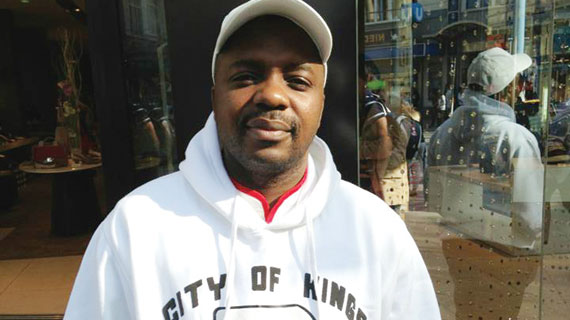
I SENSE a lot of frustration in the creative sector of late. Each time an awards ceremony goes by its followed by a lot of dust.
Artistes either point fingers at organisers or each other, claiming who should have won what. Every time there is a festival there is a lot of wrangling as to why that not this artiste was programmed to perform.
The same goes for national events that require artistes to perform. A lot of artistes feel they should also be involved more than they probably are in activities that require entertainment in Zimbabwe. 
Most of the anger comes from artistes from the southern region who seem to think there are forces out there that stifle their progress.
Whether that is true or not is neither here nor there, but for all I deduce there is a lot frustration among artistes and we need ways to deal with it.
I am of the opinion that complaining alone will not bring the rains. I have heard statements that get as far as accusing artistes from the southern region of being not good enough to be played frequently on national television and radio.
We have even been told that people in the region do not support their own artistes yet when certain so-called music gurus from the northern region and across Zimbabwean borders play in the neighbourhood the Bulawayo citizens flock to their shows. What a paradox!
Is it true that artistes from the southern region are not good enough to make it to top charts in the country?
- Chamisa under fire over US$120K donation
- Mavhunga puts DeMbare into Chibuku quarterfinals
- Pension funds bet on Cabora Bassa oilfields
- Councils defy govt fire tender directive
Keep Reading
Why have radio stations suddenly come up with classified music charts just to try and accommodate other regions?
Why must there be a Bulawayo top 10 chart and a national one? Why is there no Harare or Beitbridge top 10? I think our entertainment sector, especially when it comes to the arts, theatre, film and music needs a serious introspection.
We are aware that radio stations were licensed on the background of a commitment to play 75% local content.
How local is local content?
If a national radio station situated in Beitbridge plays 75% of Venda music produced only by artistes from their locality, do they fulfil their licence requirement.
I think as we move forward, the 75% local content should be further defined to cater for national interests.
A lot of people have not benefited from the new regulations that try to empower local artistes. The formula is simple. The public will love, judge and consume only what they see and hear.
They will go to shows and events because they have heard songs or seen acts on radio or television. What it means is that the more artistes are exposed, given more airplay then the more likely that the public will fall in love with their work.
All the complaints we face at the moment from artistes and the public about music in languages that are ignored, artistes from certain regions that are not recognised are just signs and symptoms of a deeper ailment.
We need to treat the ailment rather than the signs and symptoms.
People will not flock to shows and events hosting musicians and artistes they know nothing about. Awards organisers will not honour creative work that has not had an obvious impact on the market which is the public.
That dilemma is a result of a system that fails to showcase creative work in a balanced manner to allow the public to have more choices.
If you have known one culture, been fed on one particular diet and been exposed to one language and one type of music since you were born you cannot wake up and claim that another is the best.
The fact that people have lost faith in local broadcasters and chosen to subscribe to foreign channels like DStv should not be taken for granted.
Preservation of one’s own culture does not require contempt or disrespect for other cultures. It is to language and culture that we owe our humanity.
There is no better way to preserve our humanity than through creative arts, music and dances.
Even our local artistes seem to be losing confidence in themselves.
Many are joining the bandwagon either by migrating to the recognised regions or simply singing in those languages and copying styles and genres from artistes they feel have more limelight.
It’s no longer easy to identify local bands and dance groups because they have gone “national”.
We hope the opening up of the airwaves is the dawn of a new era.
May those that will be licensed take note and advantage of these anomalies and they shall be embraced by the public and creative sector. Keep walking.
Follow me on twitter @NkueInnoeDube or email [email protected]










